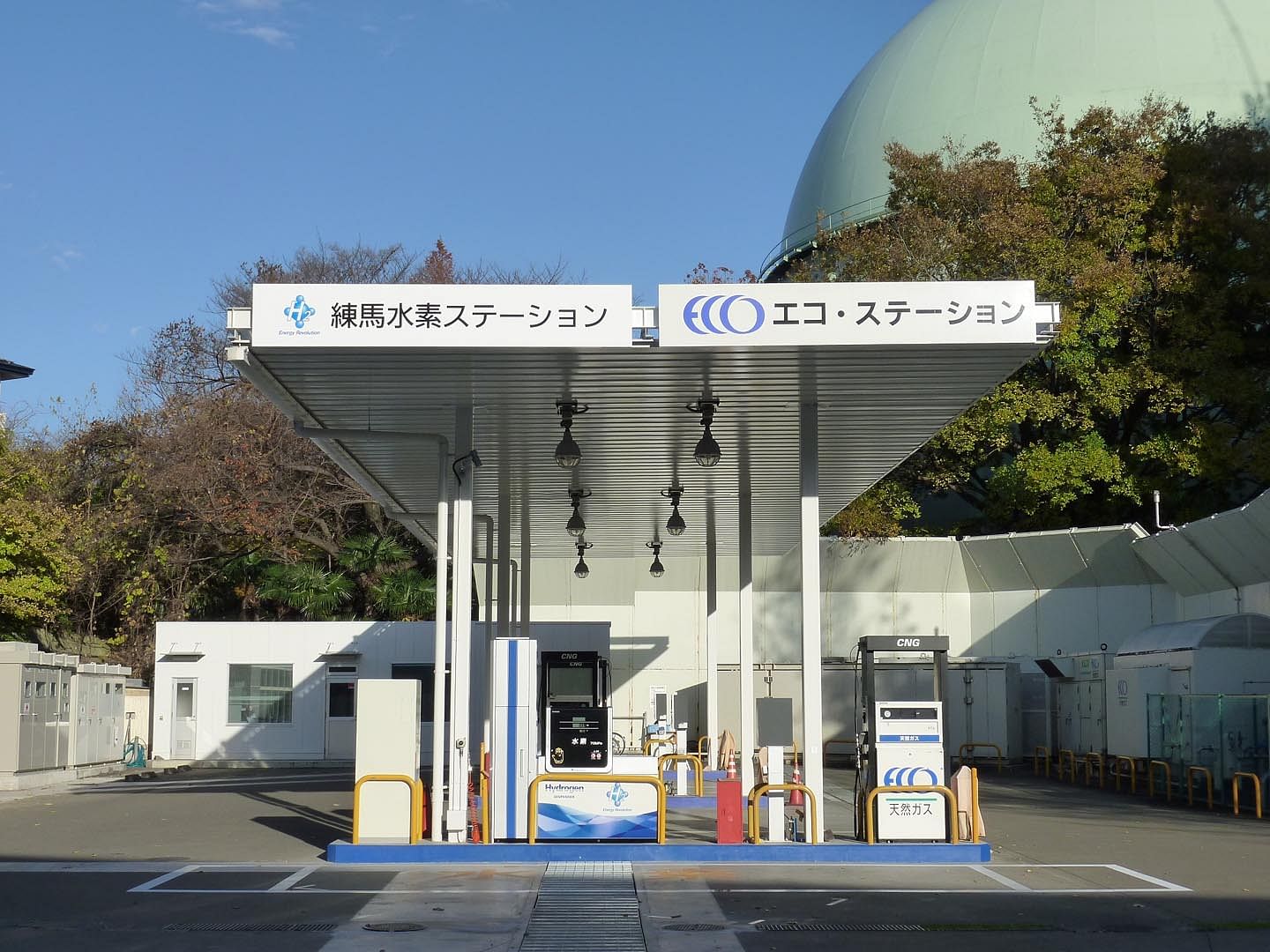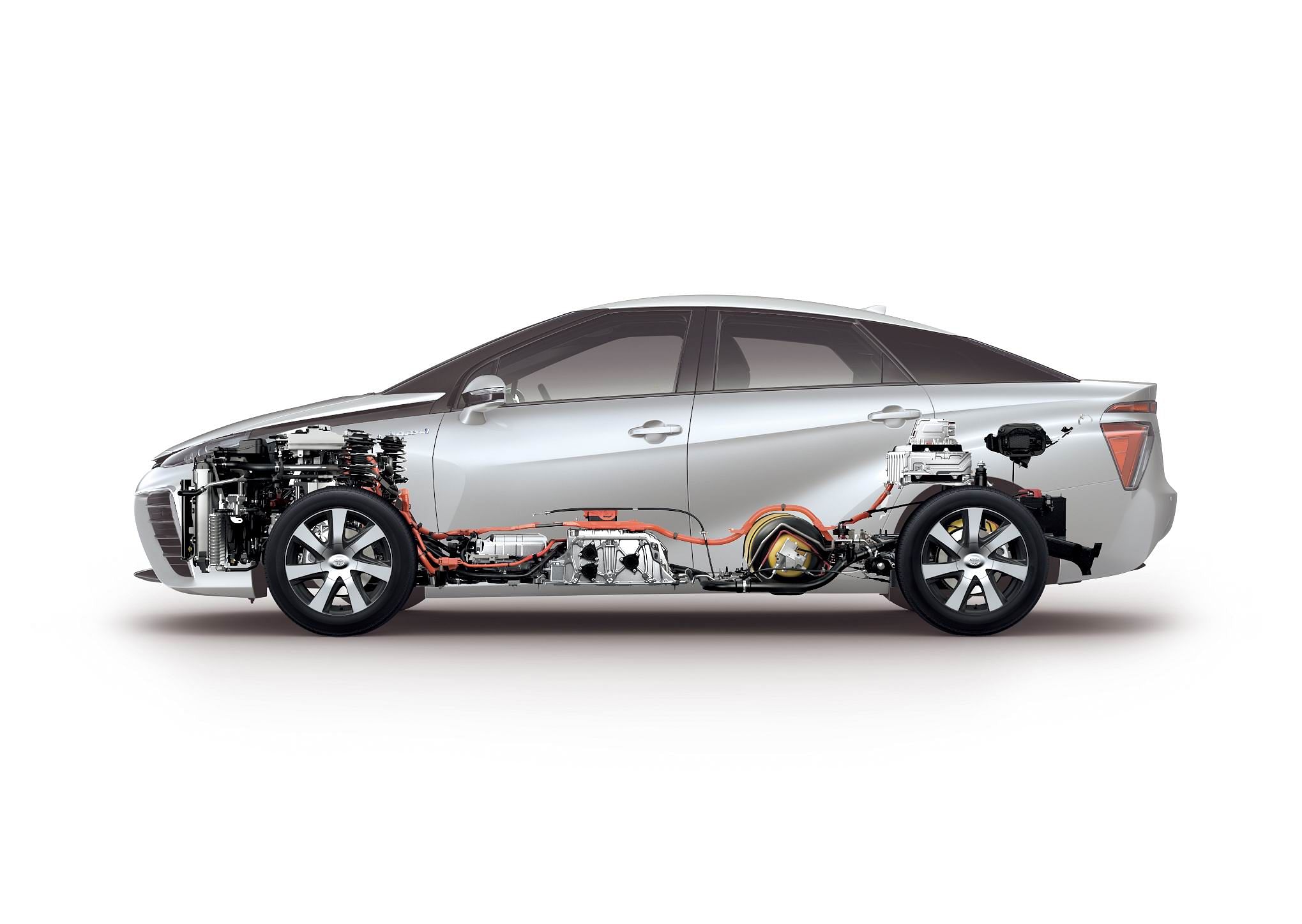Toyota, Nissan, Honda team up to set up hydrogen stations for FCVs
Toyota, Nissan and Honda are coming together to promote the setting of hydrogen stations in Japan in collaboration with infrastructure operators.
Toyota, Nissan and Honda are coming together to promote the setting of hydrogen stations in Japan in collaboration with infrastructure operators.
The joint effort is aimed at promoting development of hydrogen stations and infrastructure for fuel cell vehicles (FCVs). In addition to partially covering the operating costs of hydrogen stations, the three automakers have also agreed to help infrastructure companies deliver the best possible customer service and create a convenient, hassle-free refueling network for owners of FCVs.
The joint project (conducted alongside the Japanese government's support for hydrogen stations) will partially cover hydrogen station operating expenses incurred by infrastructure companies, and was first announced on February 12.

Furthermore the project partners will jointly raise awareness regarding these support measures, in order to encourage new companies to enter the hydrogen supply business. Financial assistance will be provided through the Research Association of Hydrogen Supply/Utilization Technology (HySUT), which is setting up a project to stimulate demand for FCVs.
Fuel-cell vehicles (FCVs) are another type of zero-emission vehicle producing no CO2 or other emissions. FCVs are the obvious next step to complement today's battery electric vehicles. Powered by electricity generated from hydrogen and oxygen, they emit only water during driving. What is critical for their widespread use is the availability of hydrogen fueling stations.
n June 2014, the Japanese government unveiled its Strategic Road Map for Hydrogen and Fuel Cells, which involves subsidising the construction of hydrogen stations and reviewing regulations. Furthermore, in February, the Japanese government decided to partially subsidize hydrogen station operational expenses in order to help stimulate new demand for FCVs. In such ways, the Japanese government continues to contribute to the development of hydrogen station infrastructure.

Toyota launched its Mirai FCV (above) in late 2014, while Honda has announced its plan to bring an FCV to market before April 2016 and Nissan is also planning to market an FCV as early as 2017.
RELATED ARTICLES
Horse Powertrain reveals hybrid conversion for electric cars
Engine-making joint venture of Geely and the Renault Group announces new hybrid powertrain that fits into the same space...
Aisin to produce hybrid motor for Mitsubishi in Thailand
The hybrid drive motor and gearbox, will be produced at Aisin Powertrain (Thailand) Co for use in the Mitsubishi XForce ...
GM reports strong Q1 sales in China, demand for EVs and hybrids surges 53%
General Motors and its joint ventures in China have sold more than 442,000 units between January and March 2025.






 By Autocar Professional Bureau
By Autocar Professional Bureau
 01 Jul 2015
01 Jul 2015
 3973 Views
3973 Views









